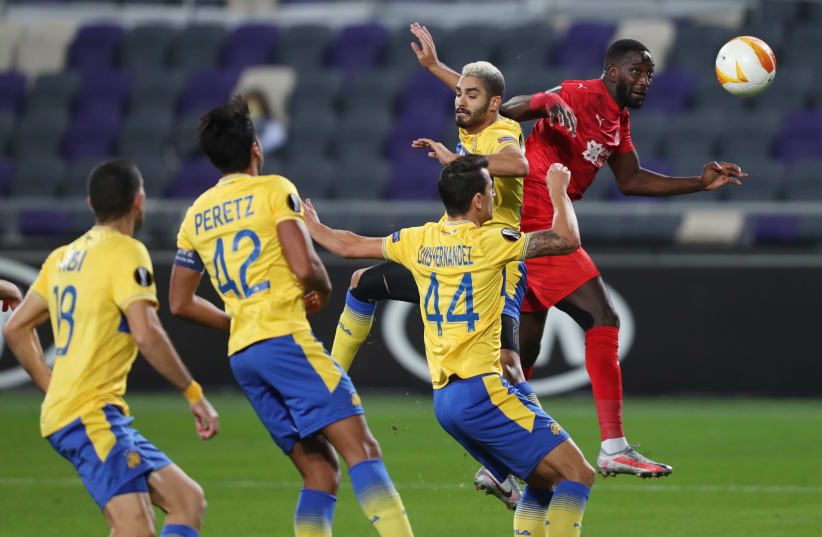I was reminded of those pleasant afternoons as I was reading First Among Nations, the debut novel by Ira Mosen, a physician who moved to Israel with his family in 2018, and who, according to the information accompanying the book, decided to write the book “after observing an Israel that is markedly different from the one often portrayed in the media, with much grassroots desire for peaceful coexistence.”
Zar – short for Eleazar – the protagonist, is a haredi (ultra-Orthodox) boy raised in Mea She’arim who would rather be playing soccer than studying Talmud. His parents disapprove of sports and want him to focus on more important things. After Zar’s aged grandfather passes away, he is thrilled to learn from a visitor that his late grandfather was an outstanding soccer player in his youth. Zar remains religiously observant but defies his parents’ wishes and continues to play soccer, becoming a youth league star.
Zar’s estrangement from his parents becomes complete when he leaves home and joins an IDF unit known for its soccer prowess. Along the way, Zar meets Egel, another soccer standout who hails from a secular kibbutz, as well as Haji Al-Salem, an Arab-Israeli youth from a Galilee village, and Tikvah, an American girl from California who joined the IDF after visiting Israel on a Birthright tour. Despite the vast differences in their backgrounds, Tikvah and Zar are drawn to each other.
Zar develops and matures, both as a person and as a soccer player, and finds that life is not always as black and white as he had been taught in Mea She’arim, but is frequently composed of different shades of gray. Haji, who grew up near an IDF checkpoint, learns that soldiers can be friendly and kind. Adin, an IDF soldier who befriends Haji, acknowledges that while Israeli treatment of Palestinians is not always perfect, the good outweighs the bad.
In a tearful exchange with Haji, she says, “Do you think I want to stop these cars and search them? It’s humiliating for them. It’s humiliating for me, for God’s sake! But I do it to protect my country. Our country. Is there a perfect country anywhere in the world? We all have flaws. And so does Israel.”
First Among Nations blends sports with religion and Mideast and world politics, and the book’s characters become enmeshed with each other in all three dimensions. Zar and his Israeli soccer teammates win the armed forces soccer championship and eventually move to the Israeli national team. The World Cup matches beckon, but events in Israel threaten to overshadow the games.
Some of the book’s characters seem a bit stereotyped and stilted in spots – Zar’s grandfather’s “hoary countenance was framed with curly white sidelocks” – and Zar’s haredi parents are given a fairly wooden treatment. His father is wholly intolerant of his son’s soccer dreams, and his mother is tearful and sad. In today’s media climate, in which TV programs such as Shtisel depict haredim with greater depth and understanding, readers might have benefited from a more expansive description of Zar’s parents. Given the author’s wish to show that people in Israel are not as polarized from each other as one might think, it was not surprising that Haji became friends with the IDF soldiers and Egel, the secular soccer star, became close with Zar.
Nevertheless, there are a number of unexpected twists and turns in the plot that are best left unsaid.
Despite the book’s attempt to be topical and contemporary, First Among Nations, at its heart, is a sports story. Though I am not a soccer aficionado, I found myself caught up in the tension of the soccer matches and the heroism and feats of the protagonists. Overall, I found First Among Nations to be an enjoyable book. It held my attention, and though the outcome was not completely unexpected, reading the book did not make it less satisfying.
Cynics who dislike happy endings, as well as those who are skeptical of the potential for coexistence – both between Jews and Arabs as well as between haredim and other parts of Israeli society – may not find the book to their liking. Those of us who like to dream of better times ahead and who like a quick, good, and occasionally inspirational read, will enjoy this book.
FIRST AMONG NATIONS
By Ira Mosen
Olive Blossom Press
266 pages; $18.95
